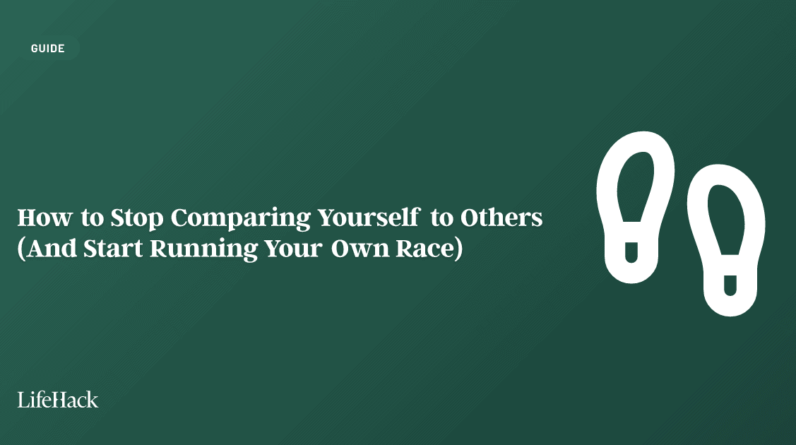
There is a massive increase in the attention paid to the field of psychotherapy.
And the results are showing that when using therapy as it’s intended, it can be very effective.
The main factor in the effectiveness of therapy? That the person getting therapy is willing to make changes and accommodate what they will be learning there.
However, the effectiveness of therapy can vary based on several factors, including the:
- type of therapy
- specific condition being treated
- quality of the therapist-client relationship
- individual’s unique circumstances
Nonetheless, research shows that therapy can be highly effective in treating a wide range of mental health issues, including depression, anxiety, trauma, and more!
When we take a leap and start therapy, we expect positive results, but what are the signs that this is happening?
8 Sure Signs Therapy is Effective
Improved Self-Awareness
You begin to understand yourself better overall.
You get better clarity regarding your thoughts, emotions, behaviours, and patterns.
This increased self-awareness helps you:
- recognize triggers
- understand why you react in specific ways
- identify areas for growth
Once you’re able to identify your triggers, it becomes easier to know what to expect in certain circumstances and effectively work on your reactions.
Positive Changes in Thought Patterns
You notice shifts in your thinking, such as:
- less negativity
- reduced self-criticism
- more balanced or constructive thoughts
For example, you may find yourself reframing negative thoughts more easily or feeling less overwhelmed by worries. Your perspective on life in general changes and adopting a positive mindset becomes easier.
You Become Kinder to Yourself
We’re often hard on ourselves, expecting to accomplish certain things within a limited time frame.
We consider ourselves failures when we fail to reach those high expectations. When therapy is effective, you become more compassionate to yourself.
You embrace the fact that as humans, we are not perfect and our failure to accomplish certain things does not diminish our self-worth.
This understanding will help you become more comfortable with trying new things and getting out of your comfort zone.
Improved Emotional Regulation
You feel more in control of your emotions and experience fewer intense emotional outbursts.
Some of us have challenges controlling our emotions, and consequently, we impulsively react in ways we often regret. When therapy is effective, you may also find that you recover more quickly from negative emotions or are better able to cope with stress and anxiety in general.
Progress Toward Goals
Generally, in your first sessions, the therapist will ask you what you’re hoping to get out of working together.
This is where you set the goals of therapy.
Over time, you start to see progress towards the goals you would have set. These goals can be related to:
- alleviating mental illness
- improving relationships
- building self-esteem
- achieving personal growth
Effective therapy will help you move towards your goals even when the steps appear small.
Improved Coping Skills
Therapy helps us manage and handle issues effectively.
It doesn’t make the problems go away on their own. When therapy is working for you, you learn how to effectively use new coping strategies to manage stress, anxiety, depression, or other challenges.
For example, you might use mindfulness techniques, relaxation exercises, or problem-solving skills more frequently and you might find them more effective than before.
Better Relationships
Your relationships with others, such as family, friends, or colleagues and, most importantly, yourself, may improve as a result of therapy.
Evidence of improved relationships includes:
- better communication
- healthier boundaries
- less conflict
- an improved ability to connect and empathize with others
Greater Sense of Empowerment
You feel more empowered to make decisions, set boundaries, and take action in areas of your life where you previously felt stuck or helpless.
The therapist does not make decisions for you but equips you with the tools you need to make the decisions that are best for you.
Therapy will help you feel more confident in asserting yourself and pursuing what you want without any feelings of guilt.
Therapy Takes Time!
Thankfully, therapy is becoming more accessible now.
Unfortunately, sometimes, we expect to see results sooner than is actually realistic.
It’s essential to understand that despite all the benefits that we look forward to, therapy is not a quick fix. It’s not like taking painkillers and immediately feeling better. We can go to therapy for months before we start seeing the results.
But ideally, every time, there are some ‘small’ changes that we often don’t see. This is because we’re fixated on the bigger picture and don’t notice the smaller steps that build towards our expected end goals.
Some positive changes brought about by therapy can be harder to spot such as:
- improved relationships
- emotional growth
- self-awareness
- improved coping skills
- progress towards goals
In some cases, we might have to make use of journaling so that we can keep track of the changes happening in our lives.
When you start journaling, it might not be easy to understand how to do it, but the more you journal, the better you become at it and the more you start to see the benefits.
Journaling helps you to keep track of your habits and see if therapy is being effective.
As you track progress, be kind to yourself and remember that things take time. If you feel like you’re not getting what you should be getting from therapy, be open to communicating with your therapist.
They might use a different modality or refer you to another therapist who will be able to help you get the results you are looking for. But remember, therapy takes time.
Photo by Antoni Shkraba







